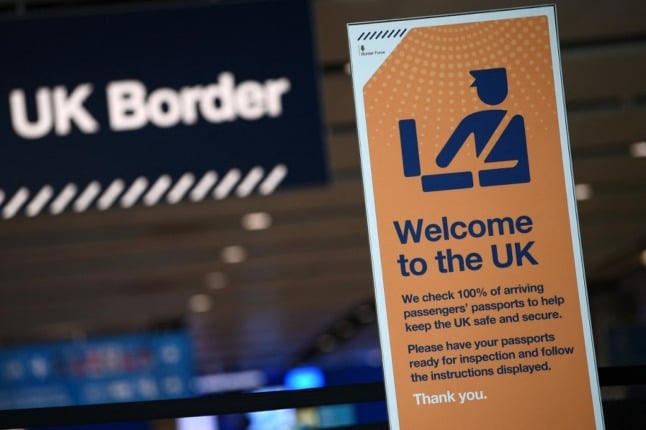Harry Shindler, who will be 100 years old in July, has long fought for the rights of UK nationals living in Italy and founded The Association of British Expats in Italy in 2010.
After almost 40 years of working to help Brits overseas retain their ability to vote in British elections, Shindler has been included in this year’s Queen’s Birthday Honours list.
READ ALSO: What Britons in Europe need to know about the UK government’s ‘votes for life’ pledge
The ex-serviceman been awarded an OBE (Officer of the Order of the British Empire), the second highest ranking Order of the British Empire award, behind CBE (Commander of the Order of the British Empire).
The title came seven years after his first royal recognition, when he was awarded an MBE in 2014.
In a statement the UK government said 129 people were being recognised for “exceptional service to the UK overseas or internationally” including those who have “given exceptional support to British nationals overseas during the pandemic”.
Clarissa Killwick from campaign and support group ‘Brexpats – Hear Our Voice’ said, “We are so pleased Harry has received this further recognition. UK nationals all over the world are indebted to him for being determined to campaign for what is right, no matter how long it takes.”
“I am in Italy and help run the Facebook group, Beyond Brexit – UK citizens in Italy. Harry is a very important figure for our group members, who would also like to express their gratitude and add their congratulations.”
She added that she “was struck by his modesty” and said that he is “unstoppable”.
Shindler’s most recent campaign work has focused on restoring voting rights to foreign-based UK citizens who, under current legislation, lose their right to vote in British elections after living abroad for more than 15 years.
In its ‘Votes for Life’ pledge, the UK government in May said it will soon act to ensure that British citizens living abroad do not lose their right to vote in the UK even if they have been abroad for over 15 years.
Shindler, who fought in the Battle of Anzio and took part in the liberation of Rome, has also spearheaded initiatives to keep the memory alive of British service personnel who helped free Italy from fascism in the Second World War.
Speaking to The Local from his home in Porto d’Ascoli on the Adriatic coast in 2018, Harry said, “So many Brits abroad have gotten involved. They’re all coming together.”
He eventually settled in Italy after first visiting as a soldier in 1982 with his wife and son.
His campaign to get Brits abroad the vote has turned him into something of a legendary figure, whose work has inspired the citizens’ rights group British in Europe.
Other UK nationals living abroad have also received a nod from the palace in this year’s honours list, with these Brits in Spain receiving titles for their services to British nationals across the EU.



 Please whitelist us to continue reading.
Please whitelist us to continue reading.
Member comments